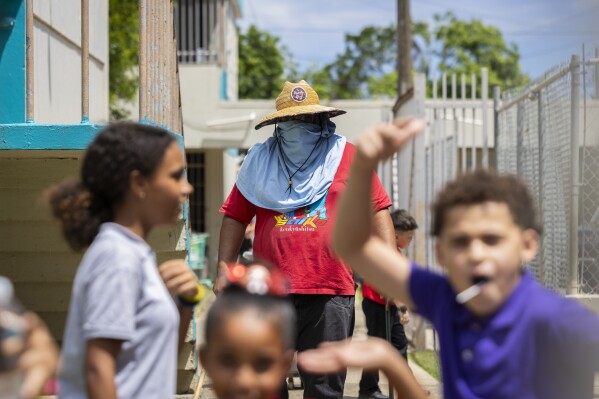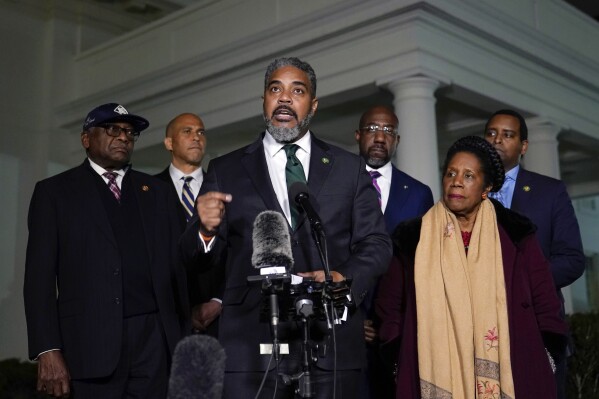Liberty University failed to disclose crime data and warn of threats for years, report says
LYNCHBURG, Va. (AP) — Liberty University failed to warn its Virginia campus community about safety threats, including from individuals accused of sexual violence, and systematically underreported crime statistics, according to a Washington Post report on the preliminary findings of a long-running federal investigation.
The private Christian university has marketed itself for years as having one of the nation’s safest campuses. But the Post reported that the U.S. Education Department’s findings described Liberty as an institution that discouraged people from reporting crimes and couldn’t provide basic documentation about crime on campus.
The Post said it had obtained a preliminary and confidential report written in May by the Department of Education, which said last year it was reviewing Liberty’s compliance with a federal law that requires schools to collect crime data and notify students of threats.
In a statement released Tuesday, Liberty confirmed it received the government’s report in May but said it has been corresponding with officials since then about “significant errors, misstatements, and unsupported conclusions in the Department’s preliminary findings.”
 Puerto Rico’s public schools clamor for air conditioning to get relief from record-breaking heat
Puerto Rico’s public schools clamor for air conditioning to get relief from record-breaking heat
 Louisiana education officials note post-pandemic improvement in LEAP test scores
Louisiana education officials note post-pandemic improvement in LEAP test scores
 Black lawmakers press Justice and Education Departments to investigate Florida’s race curriculum
Black lawmakers press Justice and Education Departments to investigate Florida’s race curriculum
The Associated Press has not independently authenticated the report. The department, which did not immediately respond to AP’s request for comment, told the Post it does not comment on pending oversight activities. Later Tuesday, USA TODAY reported it had also obtained what’s known as a Program Review Report.
Liberty repeatedly violated a law known as the Clery Act, according to the preliminary report. The federal law requires colleges and universities that receive federal funding to disseminate an annual security report to employees and students. It must include information on campus crime and efforts to improve campus safety.
Schools that violate the law are often fined and required to make sweeping changes. For example, Michigan State was fined $4.5 million in 2019. Federal investigators said it failed to adequately respond to sexual assault complaints against Larry Nassar, a campus sports doctor who molested elite gymnasts and other female athletes.
The government has been reviewing Liberty’s adherence to the Clery Act during the years 2016 and 2022. Liberty’s statement on Tuesday acknowledged the school identified “historic gaps in compliance” and said it has taken “timely action” to remedy them.
The university said it would continue working with the Education Department until the investigation ends.
“Liberty University remains fully committed to ensuring compliance in this area is met and maintained and understands the purpose of this review process is ultimately in the greater interest of our students, faculty, and staff,” Liberty President Dondi Costin said.
Liberty has become one of the world’s largest Christian schools since its 1971 founding by religious broadcaster Jerry Falwell Sr. Last fall, the school said it hit a record of 115,000 students pursuing degrees online, while more than 15,000 were enrolled at its campus in Lynchburg.
The university was already facing scrutiny over its handling of sex assault cases, while the Clery Act investigation became public knowledge last year.
Lawsuits by former students and employees have accused the school of botching sexual assault reports or failing to investigate allegations of rape. The litigation was filed under under Title IX, the federal law that protects against sex discrimination in education and often overlaps with Clery.
Liberty settled a civil lawsuit filed by 12 women women last year after they accused the school of fostering an unsafe environment and mishandling cases of sexual assault and harassment.
The women alleged that Liberty’s strict honor code made it “difficult or impossible” for students to report sexual violence. It said the university had a “tacit policy” of weighting investigations in favor of accused male students, and it said the university retaliated against women who did make such reports.
The settlement’s terms were not disclosed. But at the time, Liberty outlined a number of changes it undertook to improve campus security and review how it responds to incidents of sexual harassment or violence.
The school said it had spent over $8.5 million on campus security upgrades, while ensuring that more licensed mental health providers are available to provide counseling.
The university said last year that it was also revising its amnesty policy to “better communicate” that it will not discipline parties who engage in behaviors, in connection with a case of sexual harassment or assault, “that would have otherwise violated its student honor code.”
The ongoing Clery Act investigation comes three years after Liberty’s acrimonious split with former president Jerry Falwell Jr. His departure followed his posting of a provocative photo of himself online as well as revelations of his wife’s extramarital affair.
Falwell and the university have since filed lawsuits against each other over his departure.
Disclaimer: The copyright of this article belongs to the original author. Reposting this article is solely for the purpose of information dissemination and does not constitute any investment advice. If there is any infringement, please contact us immediately. We will make corrections or deletions as necessary. Thank you.





